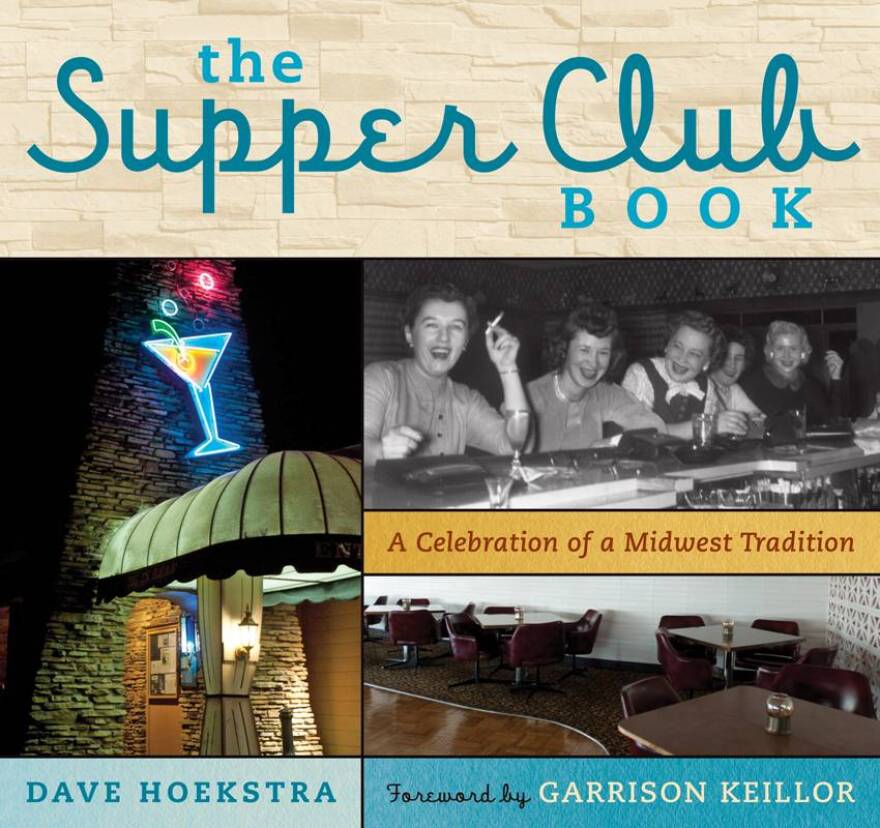It’s a Friday night – or it will be in a few hours - and you’re looking for a place to eat. Some place that you want to escape to, to have a nice, filling meal, a refreshing drink or two, and conversation. Fast food or a lively chain restaurant just doesn’t sound like it will hit the spot.
The Wisconsin solution might be a supper club.
Supper clubs, known for their Friday night Fish Frys, Saturday night Steak Dinners, full bar, linen napkins, and dim lighting, are a temporary escape into the past. Often there is entertainment of some sort, making a meal into an all-night affair. Certainly, there is no room for dine-and-dash.
Chicago Sun-Times writer Dave Hoekstra ate at these places while traveling around Wisconsin, Minnesota, Iowa, and Michigan, looking for the next story and his next meal. He felt it was time to write about these Midwest treasures in his newest book The Supper Club Book.
The Supper Club
Supper clubs began in Beverly Hills by Milwaukee native Lawrence Frank in the 1930s, but they flourished in the Midwest. When people went to supper clubs, it was not a “dine and dash;” it was an all-night affair. The night would be filled with cocktails, a steak dinner, entertainment, and more drinks to round out the night. However, with the development of smoking and drinking laws, the all-night tradition has adjusted accordingly.
According to Hoekstra, supper clubs must have certain characteristics to be a traditional supper club: a dark, eclectic setting, Fish Fry Fridays, Steak Dinner Saturdays, linen napkins, and relish trays. Originally, the men were expected to wear ties and the women were expected to wear heels. However, supper clubs are not stagnant; they are evolving in order to stay around.

Sense of community
Hoekstra says supper clubs are more than about the food: it is about the ability to escape for a little bit, the atmosphere, and the sense of community.
“It underscores a sense of community,” Hoekstra says. “The one theme about all these things is a sense of place and how important a sense of place really is. A sense of belonging, you see that in a lot of these places.”
You'll often see the same families going to a particular supper club for decades. Tom Schmock, second-generation owner of Smoky’s Club in Madison, says while a new base of clientele is frequenting the club as a throwback, much of his business relies on his regulars.
Smoky’s Club, Madison
Smoky's Club is a perfect example of what makes for a true supper club. Located close to the University of Wisconsin campus, Smoky's has only relocated once and recently celebrated its 60th anniversary.
The décor of the club is a mixture of the northern Wisconsin woods and miscellaneous accouterments. The dining areas are lined with stuffed fish that Schmock says is from a family mortuary that went out of business over ten years ago. The miscellany that helps make Smoky’s what it is are the sousaphone from the UW Marching Band, the steer skull, and the room of aviation photographs.
During the anniversary party, Schmock, the son of the original owners Leonard “Smoky” and Janet Schmock, visited with guests and snapped pictures of customers dancing to the Michael Hanson Trio. Patrons and the friendly wait staff swapped their fond Smoky's memories.
The people
It's people like Schmock who inspired Hoekstra to write the book and tell their stories. For example, he met Ozzie, the dishwasher at Smoky’s who has been cleaning dishes since the 1960s even though he lost his eyesight over the years.
Another person who stands out is Cossette at Minneapolis’ Jax Supper Club, who embroiders matchbooks while the customers are eating, giving the customers a little souvenir of their experience at Jax.
As Hoekstra says, these aren't exactly the people, stories and experiences you can find easily at any regular restaurant or fast food chain.
Hoekstra has been with Chicago Sun-Times since 1985. He is recipient of the 2013 Studs Terkel Community Media Award. He won a 2013 Lisagor Award for Best Arts Reporting. He lives in Chicago and loves Greek diners like the Golden Apple.
















